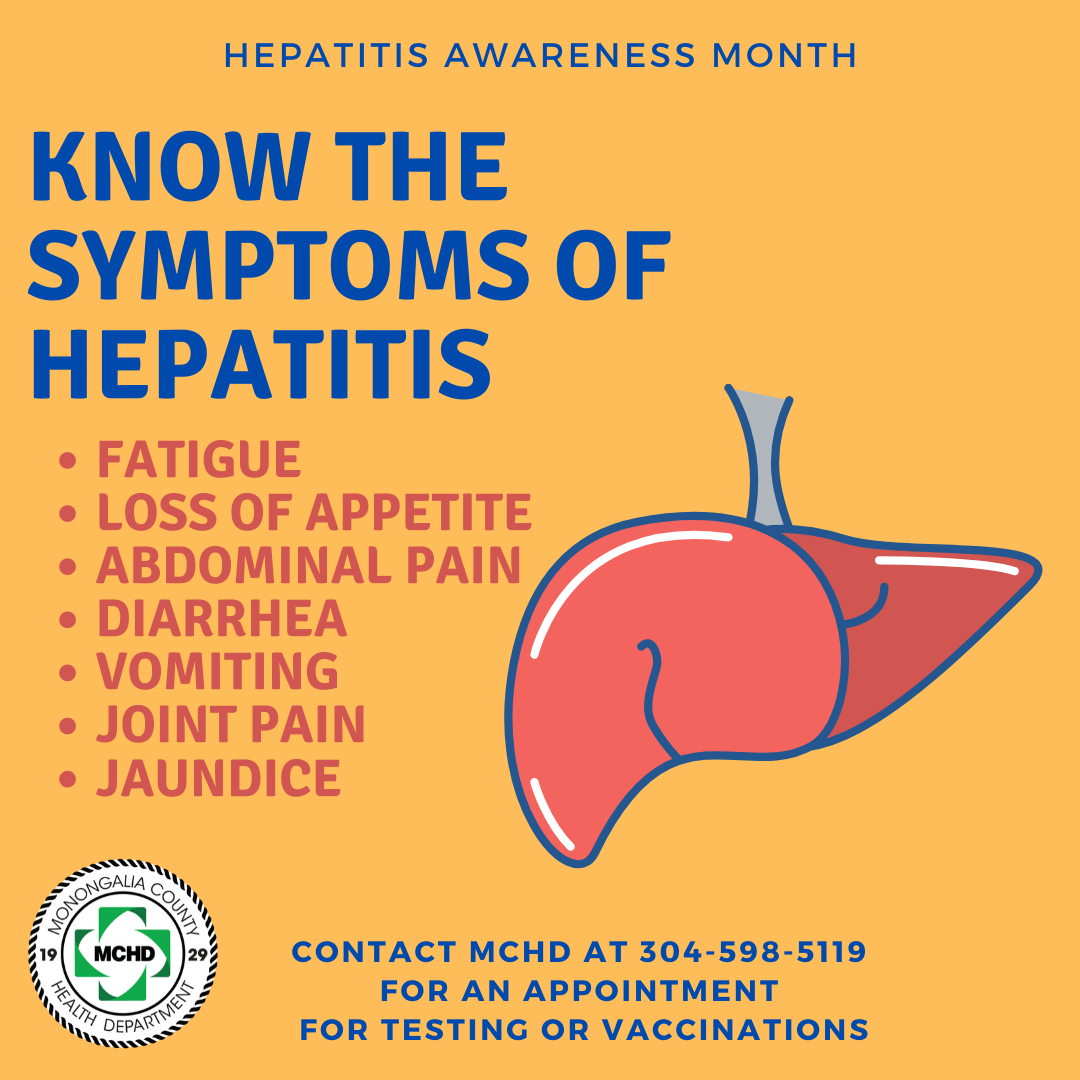Hepatitis is an alphabet of viruses to watch out for

May. 27, 2020
By Kenzie Bostick
While COVID-19 is the virus on everyone’s minds at the moment, it is still important to be aware of other viral threats we face.
In recent months we have repeatedly heard about vaccines, being careful around others and how easily a virus can spread to multiple people. Hepatitis is similar, and conveniently, May is Hepatitis Awareness Month. Hepatitis can be very contagious, but it can also be prevented with vaccines and being careful around others.
There are five types of hepatitis: A, B, C, D, E. The first three are the most common types.
Hepatitis A is a contagious liver infection that is caused by the hepatitis A virus. People with this type of hepatitis can feel sick for weeks or months, but usually recover completely with no liver damage. Hepatitis A is spread through food or drink that has been contaminated with the blood or fecal matter of an infected person. You can also catch it through close contact with the infected person.
Hepatitis A is very contagious. Like COVID-19, you can spread the virus before you start showing symptoms. Luckily, there is a vaccine for this type of virus. Children should receive the vaccine at the age of 1, and adults should receive if they never have.
Those who should especially consider it are men who have sex with men, people who use drugs, those who may be traveling to a country where the virus is common and people with clotting factor disorders.
The symptoms of hepatitis A include fever, fatigue, loss of appetite, nausea, abdominal pain, vomiting, diarrhea and joint pain. While those indications can be vague, more specific symptoms include jaundice, which causes the skin and eyes to turn yellow, and dark-colored urine.
If you think that you may have been exposed to hepatitis A, contact your doctor or local health department. If you have been exposed, your doctor may give you either a hepatitis A vaccine or immunoglobulin, both of which are only effective if you receive them within two weeks of exposure.
Hepatitis A usually clears up in healthy people. People with underlying conditions are more prone to complications, which could require hospitalization and even lead to death. Once you have had hepatitis A, you cannot get it again. Your body develops antibodies to protect you for life.
Hepatitis B can be more severe than hepatitis A. For some people, the infection only lasts for a few weeks; this is acute hepatitis B. Those who develop chronic hepatitis B will have a lifelong infection that can cause liver cancer, cirrhosis or death.
The younger the infected person is, the more likely it is that their hepatitis will be chronic. Hepatitis B can be spread from a mother to baby during birth, sex with an infected person, sharing needles and syringes, sharing items such as razors or toothbrushes or coming into contact with the blood or open wound of an infected person.
It cannot be spread by kissing, hugging, breastfeeding, coughing or through food or water. There is a vaccine for this virus, and it is recommended for infants, children under 19 years old, and those who are likely to come in contact with blood from infected people.
The third type, hepatitis C, is spread when infected blood enters the body of an uninfected person. This can happen when sharing needles, being born to an infected mother or tattoos from unregulated places.
The virus often clears from the body on its own, but people can be re-infected. The symptoms of hepatitis C are fatigue, dark urine, abdominal pain, loss of appetite, nausea, vomiting and jaundice. You can still spread the virus even if you do not have any symptoms. For acute hepatitis C, there is no recommended treatment. Chronic hepatitis C is typically treated with eight to 12 weeks of pills, and cures more than 90 percent of people.
Because the prevalence of hepatitis C is five times higher among those born between 1945 and 1965, according to the Centers for Disease Control and Prevention, it’s recommended that those individuals be tested for the virus.
Hepatitis D is an infection that can only occur in people already infected with hepatitis B. Hepatitis D can be acute or chronic. The hepatitis D virus combined with hepatitis B can cause liver disease to progress faster than hepatitis B alone. There is no vaccine, but it can be prevented by the hepatitis B vaccine in people who are not already infected.
Hepatitis E is not common in developed countries. The virus can be spread by contaminated water, undercooked pork or deer meat and shellfish. It is often less severe than other strains of the virus; most recover completely and are very unlikely to progress from acute to chronic infection. There is no vaccine, but the virus can be avoided with good sanitation and clean drinking water. It’s also important to note that hepatitis E can be more severe in pregnant women.
Contact MCHD Clinical Services at 304-598-5119 for appointments for hepatitis vaccines and testing.
Kenzie Bostick is a public information office intern at Monongalia County Health Department.